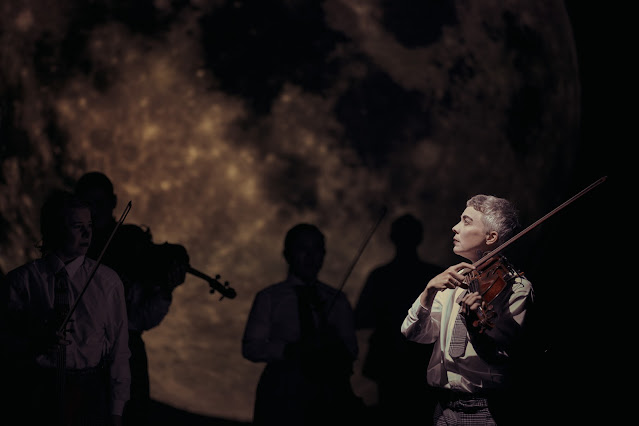 |
| DSCH - Pekka Kuusisto, Norwegian Chamber Orchestra (Photo: Magnus Skrede) |
The Southbank Centre has announced its classical music plans for next Spring and Summer. Booking opens on Friday 27 October at 10am for Southbank Centre Members and Supporters Circles. General booking begins on Monday 30 October at 10am.
The artists on the Southbank Centre's residency programmes are all busy. Violinist Patricia Kopatchinskaja continues her residency with her absurdist Nonsense music-theatre production, works by Cage, Ligeti, Brecht and Kopatchinskaja, whilst Manchester Collective collaborate with Scottish pianist Fergus McCreadie culminating in a late-night cèilidh. And the collective return with Morton Feldman’s sonic meditation Rothko Chapel alongside new pieces by Katherine Balch, Edmund Finnis, Isabella Summers and Isobel Waller-Bridge inspired by Rothko's artworks. And the Manchester Collective will be contributing to the showcase concert for second instalment of the Southbank Centre and Royal Academy of Music’s artist development scheme, Future Artists.
Organist James McVinnie joins as a Resident Artist and his first performance will be part of the Royal Festival Hall Organ at 70 weekend with McVinnie performing a mix of Renaissance dances and works by Sweelinck, Pachelbel and Bach, but he will also return with a collaboration with composer and electronic producer Tristan Perich, and performing Philip Glass, John Adams, Gabriella Smith and Inti Figgis-Vizueta with his James McVinnie Ensemble.
Other current Resident Artists include violinist Randall Goosby, who appears with the Renaissance Quartet, and performs Mozart with the London Philharmonic Orchestra. Pianist Alice Sarah Ott joins the Philharmonia Orchestra, conducted by Elim Chan, to perform a new piano concerto by Bryce Dessner, and then she returns with pianist Francesco Tristano, performing a mix of solo and duo works including new pieces by Tristano.
Norwegian Chamber Orchestra with its artistic director Pekka Kuusisto arrives with performances of DSCH, a music-theatre work featuring music by Shostakovich. Paraorchestra will present Trip The Light Fantastic by composer Sinéad McMillan, featuring a mix of acoustic, assistive, electronic and traditional orchestral instruments, alongside a new commission from Asteryth Sloane. Aurora Orchestra will present a new orchestral theatre staging of Hans Zender’s Winterreise, a ‘composed interpretation’ of Schubert’s song cycle, for tenor and chamber orchestra, here with Allan Clayton as soloist and making his debut as stage director alongside Jane Mitchell.
Mark%20Allan%20(2).JPG) |
| The Bournemouth Symphony Orchestra conducted by Kirill Karabits (Photo: Mark Allan) |
The Bournemouth Symphony Orchestra, with Chief Conductor Kirill Karabits, presents
Voices From The East, a day of concerts, talks and free performances celebrating symphonic traditions from Azerbaijan and Turkmenistan, Georgia and Armenia, and Ukraine, featuring work by Thomas de Hartmann, Borys Lyatoshinsky and Anna Korsun. The event is the culmination and celebration of Karabits’ ground-breaking work with the BSO over 15 years and the start of a new chapter when he becomes Conductor Laureate, Artistic Director, Voices from the East from Autumn 2024.
Nicholas McCarthy explores left-hand repertoire with a mix of Wagner, Schubert, Scriabin and Bartók. Discussing this unique practice, McCarthy will be joined by journalist, writer and broadcaster Samira Ahmed in a post-concert conversation. The London Philharmonic Orchestra performances include The Music in You, a festival that celebrates artistic expression of all kinds. The Orchestra of the Age of Enlightenment features Mendelssohn's symphonies and concertos across three concerts with Sir András Schiff on the fortepiano, Alina Ibragimova (violin) and Lucy Crowe (soprano) and Nicky Spence (tenor).
All this and more. Full details from the Southbank Centre's website.


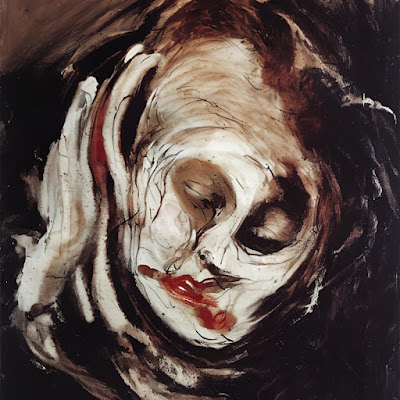
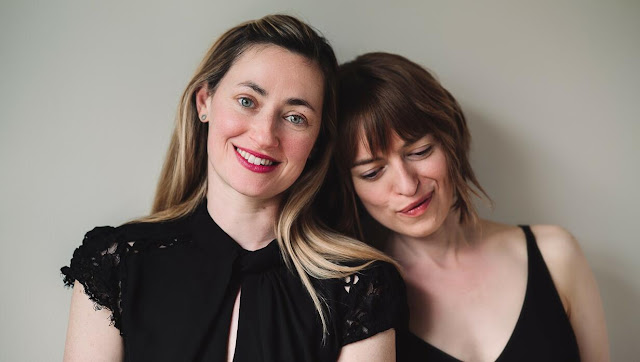

%20Mike%20Evans.jpg)



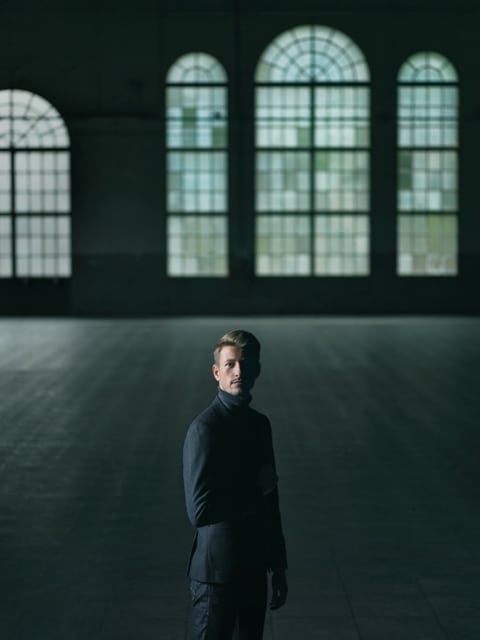

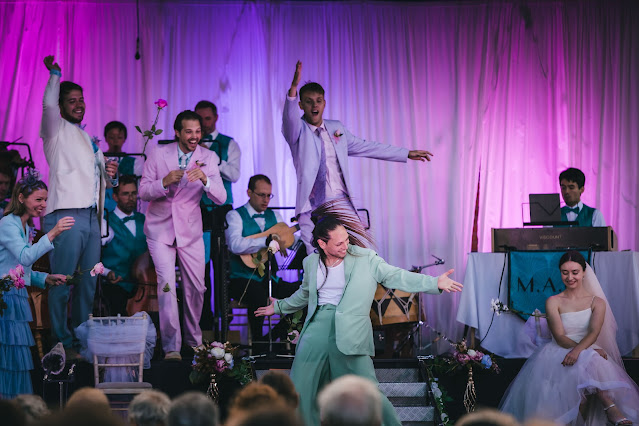



Mark%20Allan%20(2).JPG)
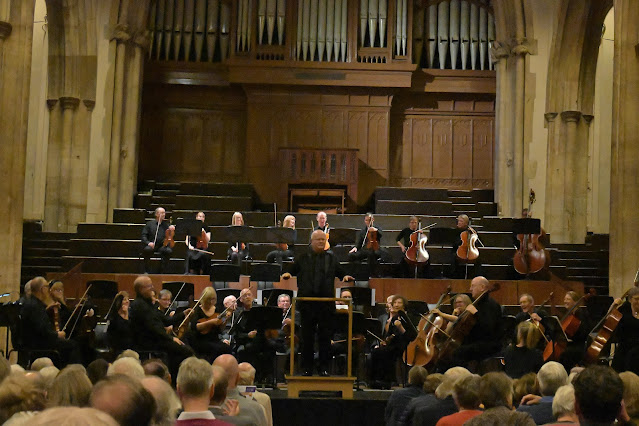

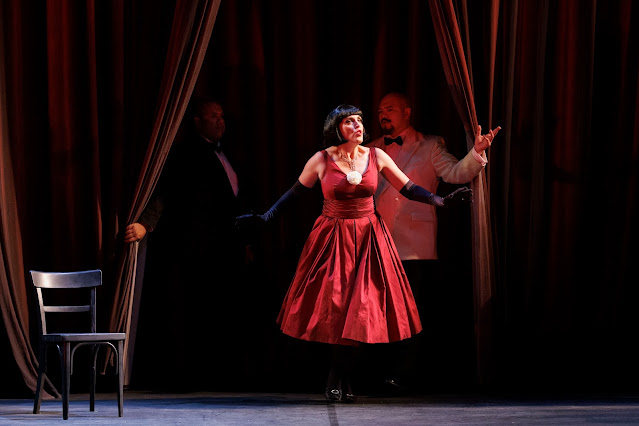
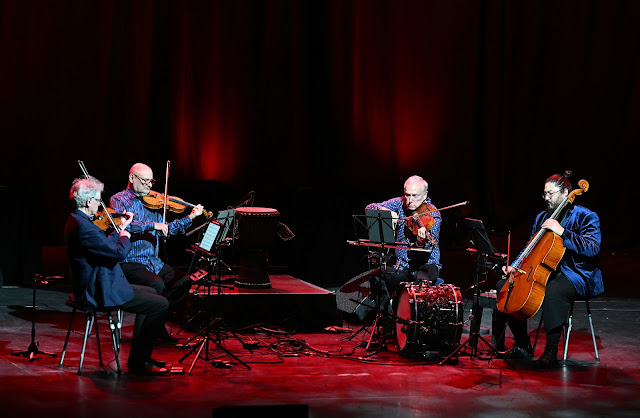


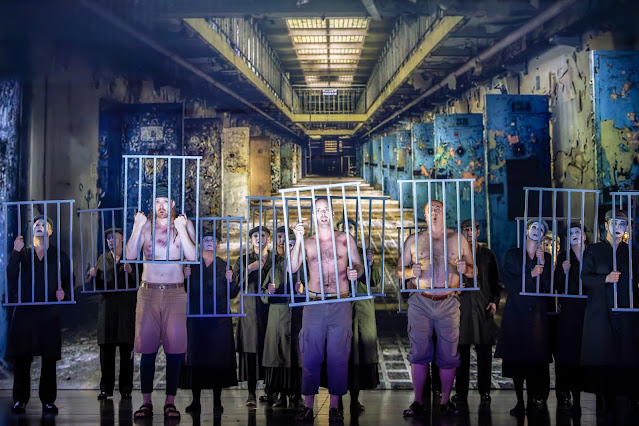

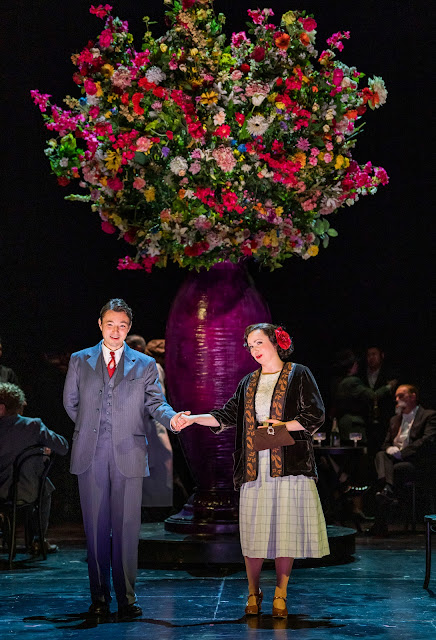
.jpg)
.jpg)



%20in%20The%20Merry%20Widow.%20Credit%20Mihaela%20Bodlovic.%20(2).jpg)

%20in%20Trial%20by%20Jury.%20Credit%20Mihaela%20Bodlovic..jpg)


%20Britten%20Pears%20Arts%20(1).jpg)

.jpg)
